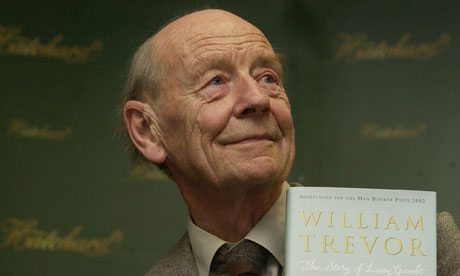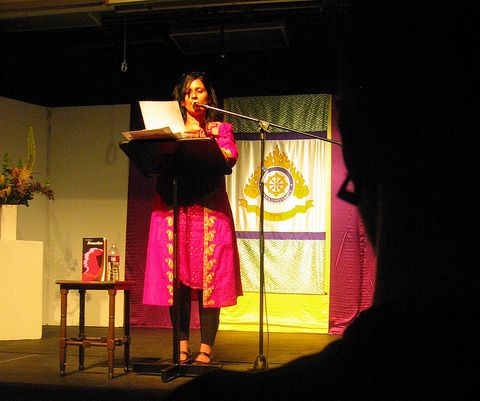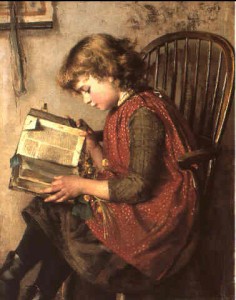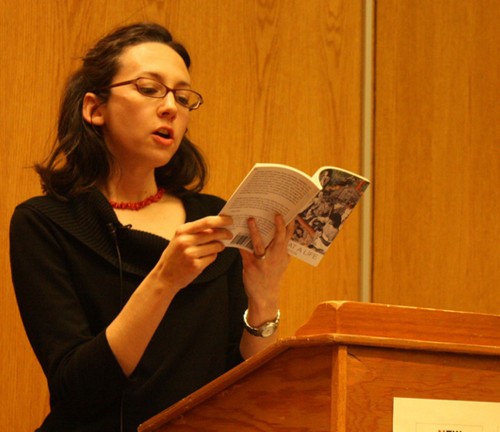9 commas, still wearable, happy turnip day
11. Yo, sonny, there is a new Diagram out.
10. The Business Insider offers 33 unusual tips to being a better writer. They seem obvious, stupid, sometimes smart, rarely unusual. OK, this was unusual:
Take a huge bowel movement every day. And you won’t see that on any other list on how to be a better writer. If your body doesn’t flow then your brain won’t flow. Eat more fruit if you have to.
8. The Decemberists ripped off all of Dr. Dre’s The Chronic.
Neurology, Experience, Age, and Re/reading
1. Last semester, I assigned the essay “Once More to the Lake” by E.B. White to my students. Most of them were not into it. I suggested that the author’s inner conflicts about change and aging might be more real to them when they are older; they were even less into that. I don’t blame them for being offended; it’s no good to be told we are too young to understand something. I’m not much older than them, so in my mind I was implicating myself in that, but even so.
2. When I was twenty, a much older friend told me that, at my age, I had to listen to Horses by Patti Smith. I did, a lot, and rarely do anymore. Around the same time, I read something in the New Yorker about how the author loved Sylvia Plath in her (or his? can’t remember) late teens/early twenties. I felt somehow offended. I never read much Plath, but I was reading a lot of Sexton at the time. I don’t read much Sexton anymore.
3. When I was 13, I tried reading Austen. I didn’t get very far. When I was 16, I read The Adventures of Huckleberry Finn. I liked it, but I don’t remember thinking it was very funny. That year, I also read Lolita up to the point of the motel sex scene, then quit. I don’t remember thinking the writing was particularly special. These days, I count Emma, Huckleberry Finn, and Lolita as top-favorite most-important-t0-me novels. The ones that delight me the most.
4. Last year, I went to a Leonard Cohen concert. I’ve always really liked his songs, especially the early ones. Birds on wires, Janis Joplin giving head and all that. The concert was by all definitions amazing. Technically perfect and highly charged. He kept falling to his knees or something. But I wasn’t moved as much as I would have liked. I kept thinking, he is old. He has accomplished so much, and here is the fruit of all that. A packed house. What more could he want. I believe that my failure to be moved had to do with not being able to comprehend what he still wanted, feared, needed, regretted after so many years and so much success without seeming to compromise. Sure, he must fear death and regret something, but I didn’t hear that in his singing.
This kind of thing is still happening to me. Does it happen to you? Are you offended yet, as I was and still probably would be if someone told me I’m just not ready for Cormac McCarthy yet, or that in time I will grow out of Frank O’Hara?
Research shows that our brain is still developing into our late twenties. What effect if any does that have on our taste in books? On how much delight we feel, or how much we “get it,” or when we are moved or not? Something in me resists it.
On the other hand, it’s comforting to think that there is something additive about aging. That we keep understanding more things. That an increased knowledge of and commerce with language and the world will further unblock us from art. READ MORE >
William Trevor v. The Idea of Experimental Writing

From the Paris Review interview:
No, I think all writing is experimental. The very obvious sort of experimental writing is not really more experimental than that of a conventional writer like myself. I experiment all the time but the experiments are hidden. Rather like abstract art: You look at an abstract picture, and then you look at a close-up of a Renaissance painting and find the same abstractions.
What is Experimental Literature? {Five Questions: Danielle Dutton}
Danielle Dutton is the author of S P R A W L (shortlisted for the 2010 Believer Book Award) and Attempts at a Life. She designs books at Dalkey Archive Press; teaches in the Jack Kerouac School of Disembodied Poetics at Naropa; and runs Dorothy, a publishing project.
Meg Pokrass Damn Sure Right Interview!
Q: Sans enunciation/emphasis or other context, your title Damn Sure Right is open-ended: braggadocio or bluster, surprise or satisfaction—and so on. The person on the cover photo is “dressed to kill” (my words), yet is also more than half hidden. What is your idea concerning the title and the cover image?
A: The title comes from an utterance in the story “Damn Sure Right”. The full utterance is, “He didn’t need to hurt her, damn sure right.”
My characters are often groping for a concrete way to see things in order to feel better.
To me, the cover photo reflects vulnerability mixed with stalwart determination. Press 53 publisher, Kevin Morgan Watson found the image, ran it past me and we were in instant agreement.
Q: Will you discuss “The Serious Writer and Her Pussy”?
Concept Flash
The Concept Flash is not about an emotion (that would be expressionism, aka Kafka), but rather something larger, an idea.
The idea is then set, into concrete.
The logic of the idea follows the dialectic of the concept. This can assist you, in a structural sense, or even with the setting, characterization, narrative, etc. The attributes of the concept can be appropriated for technique within the flash. The concept flash is infinite in its manner. You could write a lifetime of these: ideas in our lives represented as things. Stop digging holes with your fingers. I am offering a type of shovel. OK, a spoon.
Will you shut up and provide an example?
Yes, I will provide an example.
Cube by Amelia Gray.
Nicholson Baker Interview
 Have you checked out the Writers at Cornell interview series? The latest installment is twenty-five minutes of Nicholson Baker answering to J. Robert Lennon’s questions about formal experimentation, John Updike, libraries, Human Smoke, and so on. Also worth your time (all of these interviews are downloadable MP3’s): Lydia Davis, Julia Alvarez, Terrance Hayes, Patrick Somerville, Alison Bechdel, George Saunders, and Junot Diaz.
Have you checked out the Writers at Cornell interview series? The latest installment is twenty-five minutes of Nicholson Baker answering to J. Robert Lennon’s questions about formal experimentation, John Updike, libraries, Human Smoke, and so on. Also worth your time (all of these interviews are downloadable MP3’s): Lydia Davis, Julia Alvarez, Terrance Hayes, Patrick Somerville, Alison Bechdel, George Saunders, and Junot Diaz.
What is Experimental Literature? {Five Questions: Bhanu Kapil}

Bhanu Kapil teaches in The Jack Kerouac School of Disembodied Poetics at Naropa University and at God(d)ard College. She has a blog with a loyal following in Croatia, Mongolia, and Pakistan: “Was Jack Kerouac a Punjabi? [A Day in the Life of a Naropa University Writing Professor].” She has written four books: The Vertical Interrogation of Strangers (Kelsey Street Press), Incubation: a space for monsters (Leon Works), humanimal [a project for future children] (Kelsey Street Press), and Schizophrene (forthcoming, Nightboat.)
Read Away Your Tuesday
Nine short stories (from Kvashay-Boyle, Kwon, Mikesch, Lacher, Campbell, Gay, Traverse, Kesey, and Danticat), an interview with Harry Mathews, and an e-chapbook of poems by Letitia Trent. Here they are:
 1. “Saint Chola,” by K. Kvashay-Boyle.
1. “Saint Chola,” by K. Kvashay-Boyle.
An excerpt:
Skater. Hesher. Tagger.Lesbo-Slut. Wanna-be. Dweeb.Fag. Prep. What-up.Nerdy. Trendy. Freaky. In a few weeks it’ll be solid like cement, but right now nobody knows yet. You might be anything. And here’s an example: meet Mohammadee Sawy.
2. “Superhero,” by Reese Okyong Kwon.
An excerpt:

When she was very young, her mother had explained her name to her. “You were named after one of the youngest saints,” her mother told her as she brushed her hair. “A martyr. She believed in God, but her father was a strict Roman nobleman and forbade her from praying under pain of death. When she persisted, her father had her whipped until she died. She was twelve or so.






